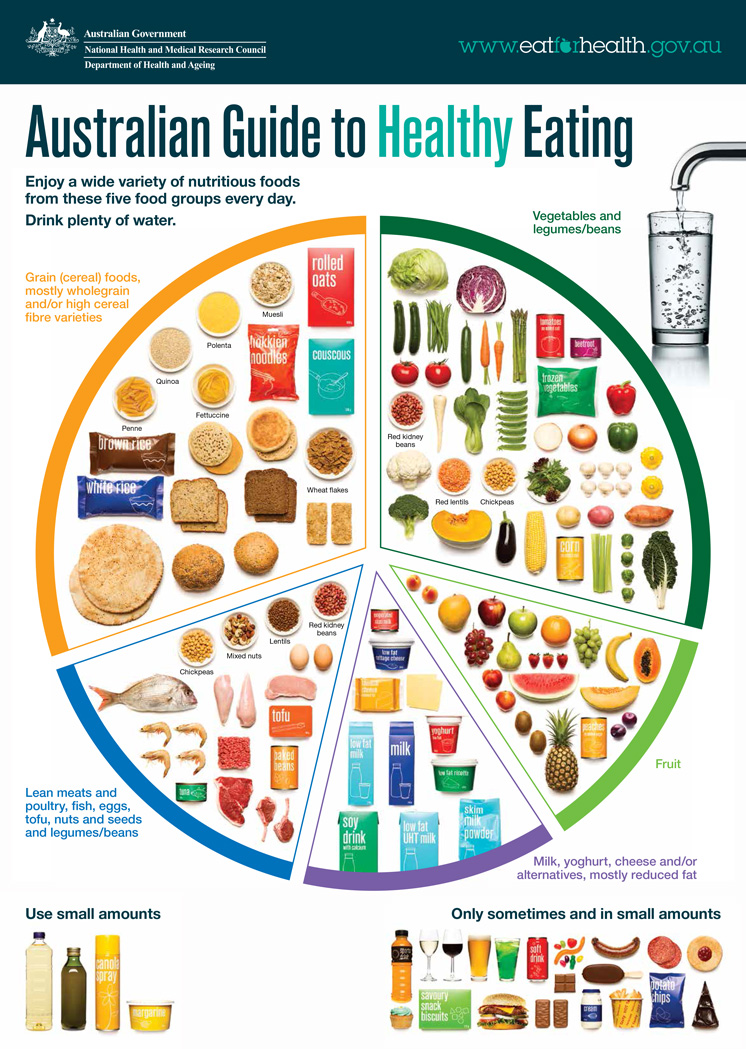Weight Management in DMD
Maintaining a healthy weight can often be challenging for children with DMD. Support from the whole family, along with assistance from a dietitian and physiotherapist, can help to limit excess weight gain.
Children with Duchenne Muscular Dystrophy (DMD) are at risk of gaining excess weight due to limited activity and steroid treatment, which often increases appetite. For children with DMD, being overweight places them at a greater risk of complications, reduces their ability to move around and be independent, and can decrease their overall quality of life.
Your child will generally need a smaller amount of food compared with other children their age because their physical activity is reduced. Continue to give your child a normal healthy diet including all food groups: fruit, vegetables, breads and cereals, dairy products, and meat or meat alternatives. Keep the content of their meals and snacks similar to those eaten by the rest of the family so that your child doesn’t feel that they are on a ‘diet’. Talk to your dietitian about suitable meal and snack sizes. Discuss with your child’s physiotherapist ways to maximise exercise and activity within the limitations of their abilities.
Ideally, your child’s growth should be monitored at each clinic visit. Your dietitian will plot your child’s height and weight on a growth chart to identify if your child is gaining weight too quickly so that this can be addressed.
Weight Management and steroids
Steroids are commonly used in the treatment of DMD and play an important role in improving and maintaining strength and function. Steroids can increase appetite, which can lead to a rapid increase in weight. In addition, children often crave high fat, salty foods while on steroid treatment, which can further increase their energy intake and weight gain.
A small amount of excess weight gain while on steroids is difficult to avoid. Some of the weight gained is due to the fluid retention that accompanies steroid treatment. However, it is important to aim to maintain your child’s weight within a healthy range. This may require some changes to be made to their usual intake and what your family eats.
The following strategies may be useful in minimising excess weight gain:
- Encourage your child to eat three small-moderate sized meals plus 2-3 small snacks per day. Ensuring that your child eats regularly means that they are less likely to get to the point where hunger is overwhelming and makes eating difficult to control.
- Include a small portion of protein-containing food at each meal and snack time. Protein is more filling than carbohydrates and fat. Protein-containing foods include lean red meat, chicken, fish, eggs, dairy foods (low fat milk, yoghurt, cheese) and nuts/nut spreads.
- Avoid keeping high fat, high sugar “junk foods” (e.g. chips, chocolate, lollies, soft drinks, savory and sweet biscuits) in your home as these are likely to be very tempting to a child on steroids and will contribute to weight gain, especially when eaten in excess.
- Grill, bake, BBQ, steam and roast rather than frying and avoid adding fats and oil to cooking
- Choose grainy bread and cereal options instead of white alternatives. This will help your child feel fuller for longer
- Encourage your child to make the best choices by ensuring that healthy foods are the most accessible options. Try to have your kitchen well stocked with healthy meal and snack options (see ideas below).
- When going out, pack healthy snacks to avoid having to buy take-away food which is often high in calories, or choose low fat options such as sushi, salad sandwiches or fresh salads. Avoid large servings whilst out.
- Discourage your child from excessive snacking throughout the day as this is likely to lead to weight gain. Instead, be firm about sticking to set meal and snack times. Encourage your child to drink water between set meal and snack times.
- Try to distract your child from food with other activities such as playing games, reading and outdoor activities if possible.
- Ensure your child drinks plenty of fluids, preferably water or low fat milk. Avoid juice, soft drink and cordial as these contain large amounts of sugar which will contribute to weight gain. Low calorie drinks such as diet soft drinks can be offered in moderation.
- Encourage your child to wait for 20 minutes after meals before having another serving as it may take some time for them to register that they have eaten enough.
- Have a designated eating area in your home, such as the dining room or kitchen table. Avoid all screens during meal and snack times, including TV, iPads, phones, tablets, video games, and so on.
Healthy snack options include:
- Fresh fruit (max 2 pieces per day)
- 1 cup of air-popped popcorn with a small amount of salt/spices (no butter)
- Low fat, low sugar yoghurt
- Carrot/celery/cucumber/capsicum sticks or snow peas with hummus/tzatziki/tomato salsa or other low fat dips
- Fruit kebabs
- Rice crackers/cakes with low fat dip (max 1-2 tablespoons) or Vegemite
- Smoothie made with fruit, low fat milk and yoghurt
- 1 small can of salt-reduced baked beans
- Vegetable soup
- A boiled egg
- Low-fat cheese with rice crackers
If you are concerned about your child’s weight or nutritional intake and your child is not seeing a dietitian, ask your doctor to refer you.
Extra resources
Below are extra resources that may help you understand more about nutrition in children with DMD. You can access these files by clicking the "Download" buttons.
- Nutrition in DMD.
Download PDF - The Australian Guide to Healthy Eating (image below).
If you are having trouble viewing this image, please click here to open it as a separate page.

